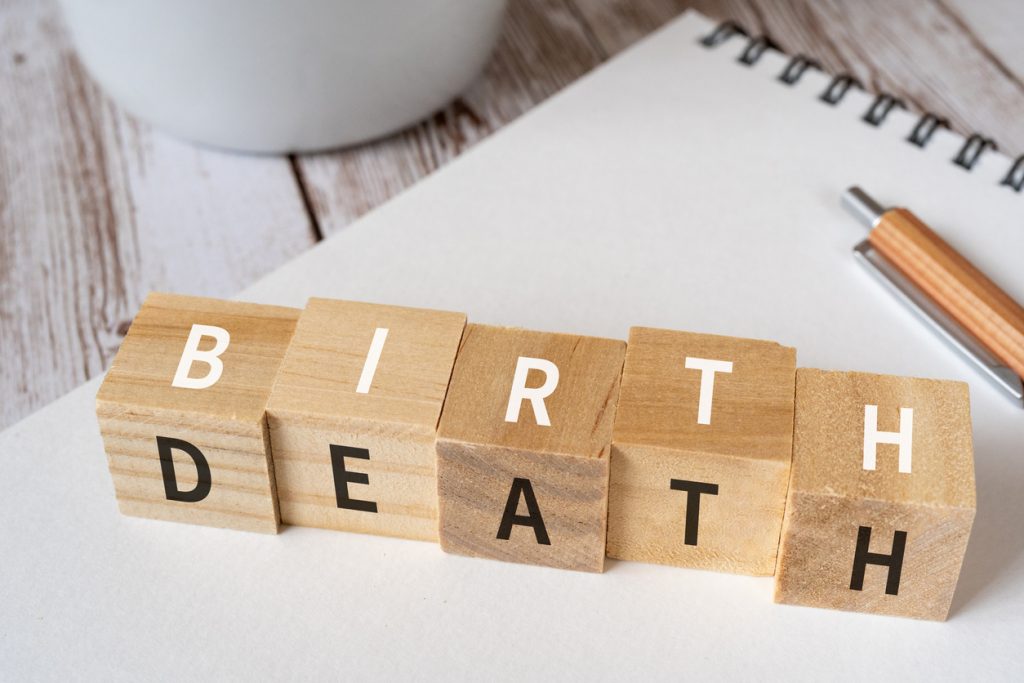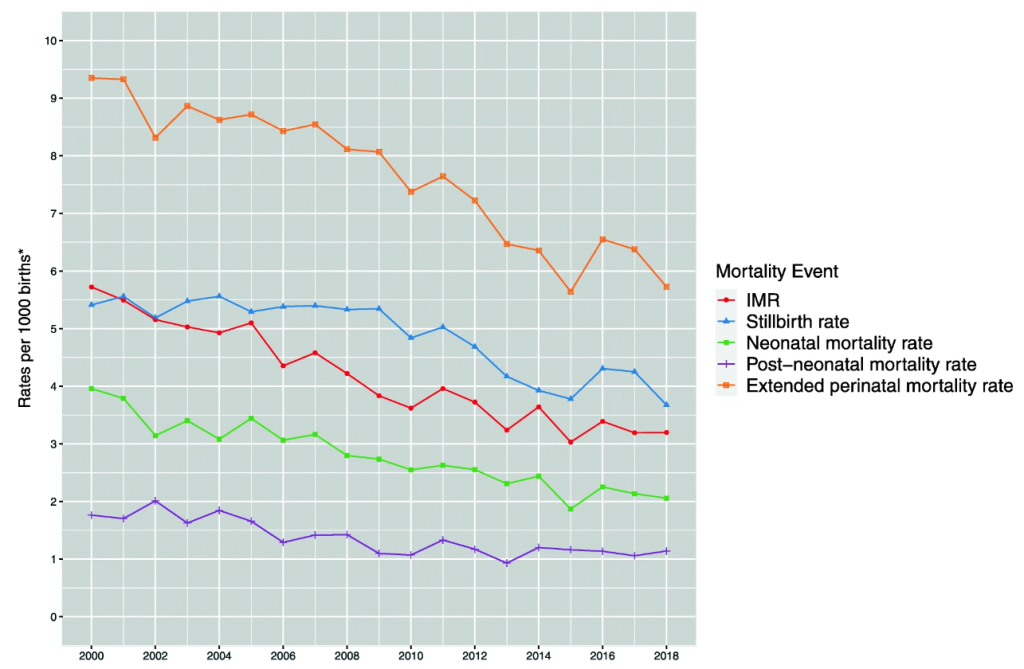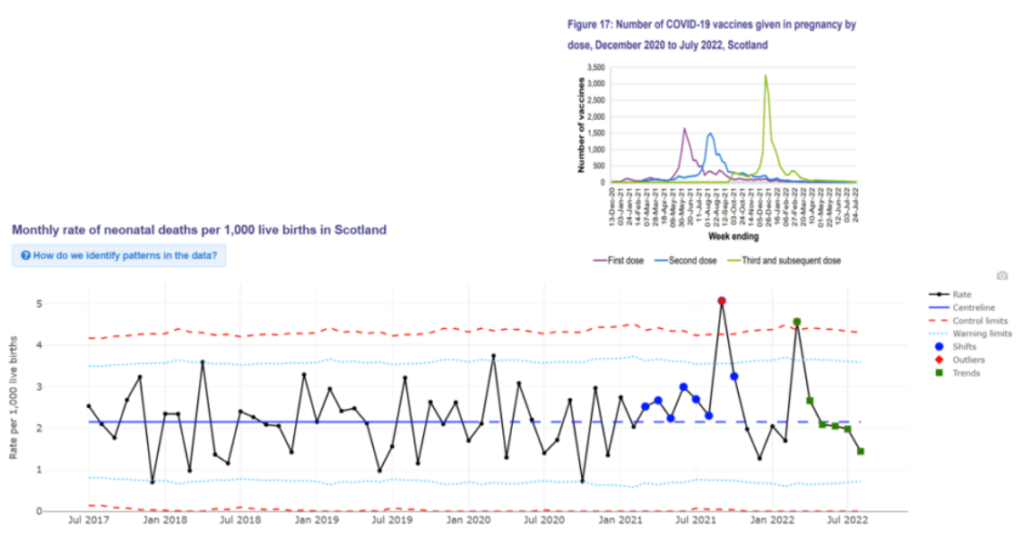
“vaccines will not be investigated”
Losing a baby is one of the hardest roads to travel and fortunately for most parents this is something they will never have to face. Approximately two babies per thousand live births will die during the first 28 days, most deaths being related either to extreme prematurity or to major congenital anomalies.
It has thus been a huge concern to Public Health Scotland when in September 2021 neonatal deaths exceeded the warning range. A brief investigation confirmed these losses were not related to maternal Covid-19. But 6 months later, in March 2022 there was another surge.

These deaths fall against a background of steady improvement in outcomes over the previous two decades (Figure 2) so there is pressure to investigate any avoidable causes.

Healthcare Improvement Scotland (HIS) announced a review into neonatal deaths from April 2021 to September 2022, spanning both these peaks. Last month, it was confirmed that retired consultant neonatologist Dr Helen Mactier has been appointed to chair the expert group. The Herald newspaper, in announcing her appointment, stated that there is no plan to investigate any possible link to Covid-19 vaccination. This, if correct, would represent an extraordinary closed-mindedness. The argument put forward by Public Health Scotland (PHS) is that the vaccines are already known to be safe. PHS confirmed that it had not checked the vaccination status of any of the mothers affected and stressed that there was no public health basis to do [so], and that such an analysis “whilst being uninformative for public health decision making, had the potential to be used to harm vaccine confidence”.
A previous article by HART on this topic, included this chart, where the above chart of neonatal deaths was overlaid by the peaks in vaccine doses for pregnant women (Figure 3).

A group of health professionals and academics have written to Dr Mactier to request that she undertakes to include vaccination status in her inquiry. As the authors say, “The suggestion previously voiced that an investigation of any role of vaccines might increase ‘vaccine hesitancy’ is clearly a non-argument. If the outcome of such an investigation showed no link to vaccination status, then surely that should reduce vaccine hesitancy. But if by any chance the vaccines do turn out to have a role in these deaths, then it would be negligent not to act upon such information.”
This letter has gone in the same week as a letter to the President of the Royal College of Obstetrics and Gynaecology (RCOG) who have written a new position statement extolling the safety and benefits of covid vaccines in pregnant and lactating women, a position statement largely devoid of evidence and which ignores concerns previously raised by the same group. The authors have included a Freedom of Information request for all the evidence the college has used in its deliberations.
We will of course publish any response received to either of these letters.

